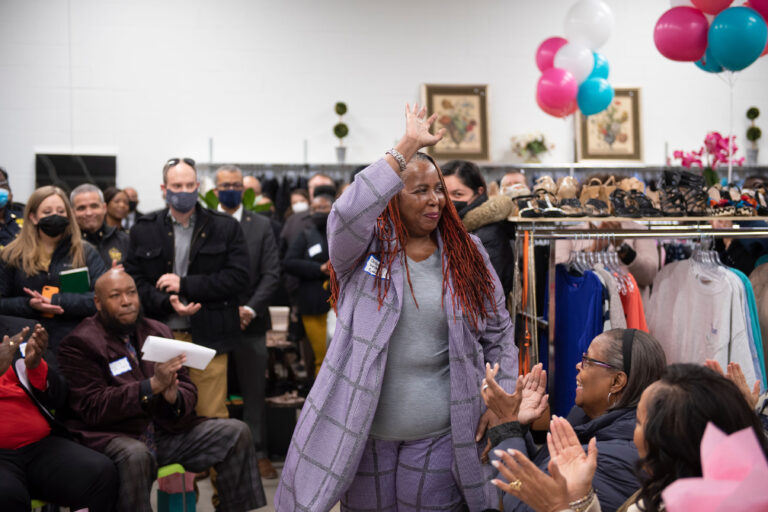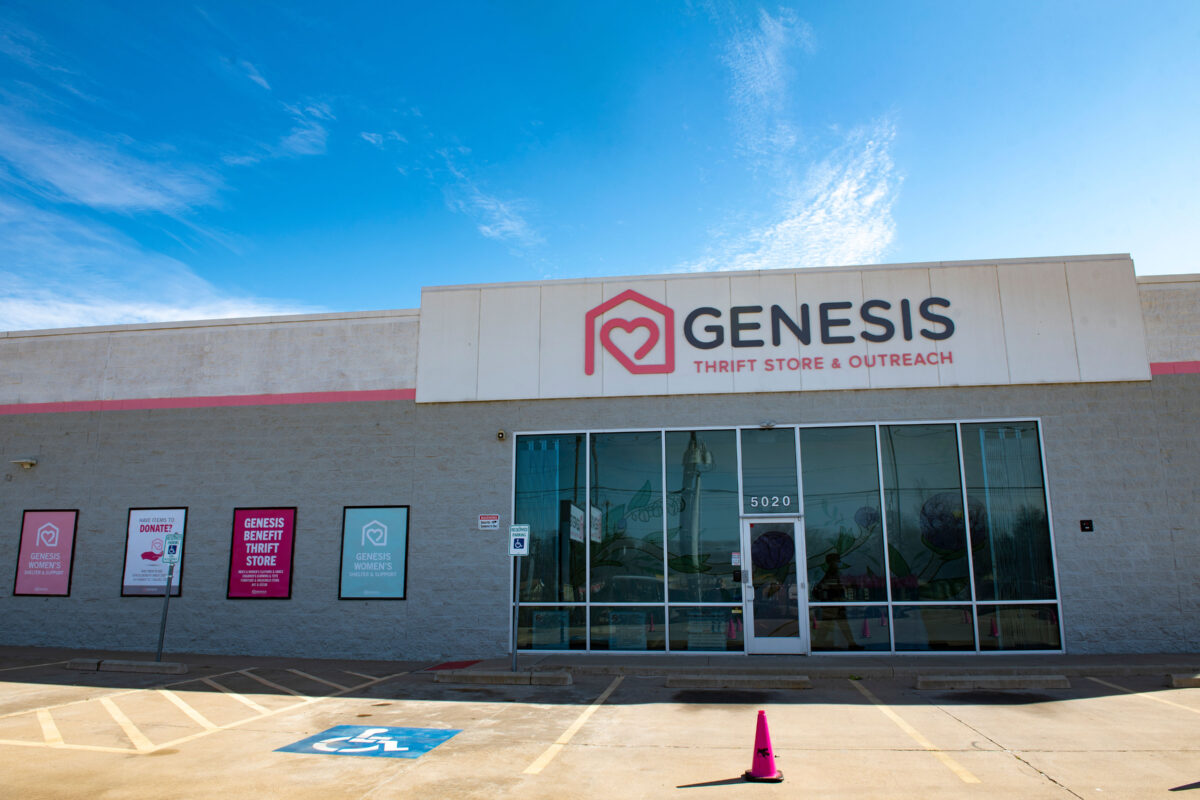The new outreach facility at 5020 S. Lancaster Rd. will provide life-saving resources and services to the area’s domestic-violence victims.
(Source: D Magazine)
In the early 1980s, Cassandra Wesley called a domestic violence shelter for help, but she didn’t know what to ask.
“I didn’t know to say that ‘I’m eight months pregnant, and he just slung me across the room,’” she says. Instead, she just said she needed an apartment.
Well that’s not what we do, they responded. “So I hung up the phone,” Wesley says, “and I stayed an additional five years.”
Then, in 1987 after another violent incident, her boss told her to call the Genesis Women’s Shelter, which had just opened in Oak Lawn. “I’m crying, I’m hysterical,” Wesley recalls. “And, you know, I was met with, okay, just take a minute and breathe and tell me what’s going on.”
Genesis began as a domestic violence shelter for women and children in the Dallas area in 1985. Since then, it’s opened an outreach center on Lemmon Avenue and a thrift shop on Knight Street. This month, the shelter is set to open a second non-residential outreach center and thrift shop at 5020 S. Lancaster Rd., with Wesley at the helm as program manager.
The center is “much needed,” Wesley says. “And it’s been needed for, I would say, forever.”
The new Genesis center will be located in the 75216 ZIP code, which has some of the highest rates of domestic violence in the city.
There have been 184 reported assaults in 75216 in the first three months of 2022, according to a Dallas Police Department family violence report issued March 9. The two next highest zip codes, 75243 and 75217, have had 182 and 157 reported assaults, respectively. The other 61 zip codes included in the report have a mean average of 33.
There are several nonprofits already working in the area, like Women Called Moses and All Women Marching for Hope. They’ll each provide referrals and resources, Wesley says. But besides the Dallas County Human Service Department on Ledbetter, the community doesn’t have any social services nearby. Meanwhile, many women don’t have the time or the money to take DART across town to the Lemmon location for a half-hour meeting.
Genesis has wanted to open a center in this area for the past five years, says Amy Norton, Genesis’ senior director of fund development. By 2020, the nonprofit decided it couldn’t wait any longer. The local community has embraced the new facility. After the February 25 ribbon cutting, Wesley says she arrived at Lancaster on March 1 and found seven cars waiting, filled with folks asking when the center would open. It was supposed to open last fall but stalled amid pandemic-related delays with getting permits, labor, and materials.

About a quarter of all women in the U.S. are victims of some form of intimate partner violence. In Texas, one in three women will experience domestic violence in her lifetime. Since the fiscal year began in October, the Dallas Police Department’s Family Violence Unit has reported more than 2,500 assaults across the city.
But abuse is more than just physical violence. Of the 2,500-plus DPD-reported family violence assaults this year, 252 are categorized as intimidation, which include verbal threats, harassment, and stalking.
“We are often blown away here at Genesis at how creative abusers can get,” Norton says. It’s about power and control, whether that’s physical attacks or verbal and emotional abuse, like manipulation, belittling, or isolation. Abusers will use their victim’s faith against them or gaslight them into submission. Over time, “that really chips away at your mind and your soul.”
Wesley says this generates a different kind of fear in women, because “he is so controlling and has made you feel like, for so many years, you can’t do anything without him.”
They see financial abuse in almost every case. This is “often more powerful than a lock and key,” Norton says. A victim might want to get out, but their abuser has taken all their money or has destroyed their credit so they cannot get an apartment.
A large part of Genesis’ care now is supporting women through these types of abuse with services like counseling, therapy for children, and legal support. The shelter is not the “be all, end all of services that we can provide for someone who’s experienced domestic abuse,” says Norton, explaining that the majority of Genesis’ services are at the non-residential center on Lemmon. After all, not everyone experiencing domestic violence needs a place to stay—they might be staying with a friend or are still with their abuser, she explains.
If a woman left home before grabbing her medication, Genesis will help her get her prescriptions. They’ll make sure kids don’t fall behind in school. If she needs clothes, she can shop at the Genesis thrift shop for free. They’ll help her plan her escape. The mission, says Norton, is to “surround her with anything and everything we think she might need to help her take her first steps toward healing.”

The new Genesis center on Lancaster will provide the same services and support as the Lemmon location. There will be counseling, as well as childcare for mothers attending services. There will be safety planning, says Wesley, like how a victim can hide important documents or clothes before she leaves her abuser. Wesley envisions providing life-skill seminars on resume writing and interviewing and computer classes.
Wesley’s goal is to help women become self-sufficient. She says after a woman leaves the shelter, it’s not a Cinderella moment. There is life after the abuse. Women need to master paying bills and getting food and clothes in the house. They need to know that they’re not alone and have continued support and community around them.
Wesley says when she called Genesis back in 1987, they listened to her story and told her to come immediately. She picked up her three kids—then aged 10, 7, and 5—from school, and fled southern Dallas “with the clothes on my back.” They stayed at the shelter for almost four months. She and her kids spent Thanksgiving and Christmas there, receiving counseling and support.
In January, they moved out after Wesley got an apartment. They moved back to southern Dallas, but her ex found her new address and attacked her.
She says because of Genesis, she knew what her rights were and that she had a community backing her, so “the fear of him was gone.” She pressed charges.
“By then, I had the strength, the courage, and I knew I had people that was going to be working with me to fight against him,” Wesley says. “And that’s what I did.”
Wesley knows there are women like her in southern Dallas. It’s why Genesis couldn’t wait any longer.


